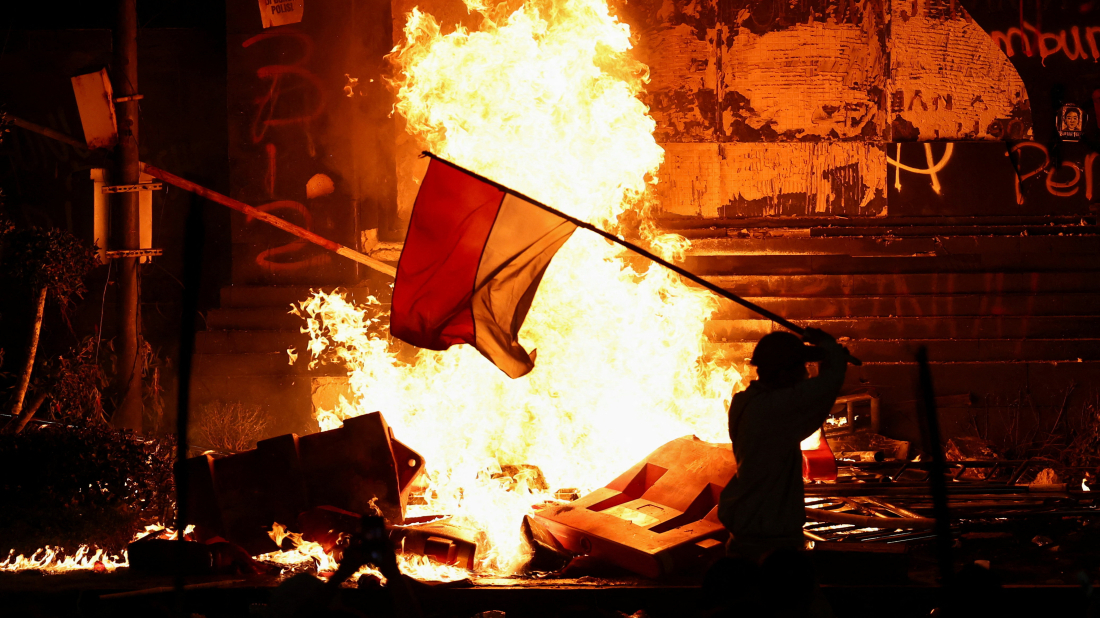In photos: Day 6 highlights from Milano Cortina 2026 Winter Olympics
Day 6 of the Milano Cortina 2026 Winter Olympics brought fans and photographers unforgettable moments of athleticism, determination and sheer joy. Fro...

Demonstrations across Indonesia have intensified after the death of a delivery driver in Jakarta, alongside criticism of government policies on wages, taxation and lawmakers’ allowances.
Protests expand beyond Jakarta
What began in Jakarta has extended to cities across the country, including Surabaya, Bandung, Makassar, Medan, Yogyakarta and Manokwari. Student groups, trade unions and online motorbike taxi drivers have taken part. In Surabaya, crowds entered the East Java governor’s compound, while in Bandung, part of the regional parliament building was set alight. In Makassar, a police post was burned during confrontations.
Death of a delivery driver sparks anger
The turning point came on 28 August, when Affan Kurniawan, a 21-year-old delivery driver, was struck and killed by a police armoured vehicle near the national parliament in Jakarta. Police confirmed the incident and announced that seven officers from the Mobile Brigade unit were suspended for questioning. Jakarta’s police chief expressed regret and promised strict sanctions if violations were found. President Prabowo Subianto conveyed condolences to the family, visited their home, and ordered a transparent investigation.
Economic concerns drive demands
Protesters have linked their anger to economic difficulties. Inflation and job losses have hit households, while parliament recently introduced a housing allowance of 50 million rupiah per month for its 580 members. Critics say the allowance is excessive compared with the minimum wage in many regions. Student and union groups are calling for wage increases, reforms to taxation, and an end to job outsourcing.
Security response and arrests
Police used tear gas and water cannon outside the national parliament and police headquarters in Jakarta, where crowds attempted to breach security barriers. Vehicles and traffic signs were damaged, and tyres were set alight. According to Jakarta’s Legal Aid Institute, more than 600 people have been detained this week, including 171 high school students intercepted on their way to the capital. The Indonesian Legal Aid Foundation said some detainees reported rough treatment.
Government and police statements
In a televised address, President Subianto said he was “shocked and disappointed by excessive actions of officers” and pledged accountability. He also urged the public not to be provoked by groups “seeking chaos.” Police officials apologised to the victim’s family but said some demonstrators had vandalised property and endangered public safety.
Economic impact and investor concerns
The Jakarta stock index fell by more than 2% during the peak of the protests, while the rupiah weakened to its lowest level in weeks, before later stabilising. Analysts say investors are closely watching the government’s handling of the unrest, as prolonged instability could affect confidence in Southeast Asia’s largest economy.
Looking ahead
Student organisations and unions have said they intend to continue demonstrations until reforms are enacted. Analysts says that the government faces a choice between dialogue and a heavier security approach. Rights groups have emphasised that how the authorities respond will influence perceptions of Indonesia’s commitment to democratic accountability.
Greek Prime Minister Kyriakos Mitsotakis arrived in Ankara on Wednesday, where Turkish President Recep Tayyip Erdoğan held an official welcoming ceremony at the Presidential Palace, marking the start of high-level talks between the two NATO allies.
A senior adviser to Iran’s Supreme Leader said on Tuesday that negotiations with the United States must remain focused on the nuclear issue and be grounded in realism, as Washington and Tehran prepare to resume talks mediated by Oman.
James Van Der Beek, who rose to fame as Dawson Leery in the hit teen drama Dawson’s Creek, has died aged 48 following a battle with stage 3 colorectal cancer.
Canadian Prime Minister Mark Carney said a bridge project linking Canada’s Ontario province with the U.S. state of Michigan would contribute to cooperation between the two countries.
The suspect in a deadly school shooting in western Canada was an 18-year-old woman who allegedly killed her mother and stepbrother before attacking her former school. Investigators have not provided a motive for what is being described as one of the worst mass killings in Canada.
Day 6 of the Milano Cortina 2026 Winter Olympics brought fans and photographers unforgettable moments of athleticism, determination and sheer joy. From the ice rinks of Milan to the snowy slopes of Livigno, athletes pushed themselves to the limit delivering breathtaking performances.
U.S. border chief Tom Homan said on Thursday (12 February) a federal immigration crackdown in Minnesota will end after months of raids that led to more than 4,000 arrests, mass protests and two fatal shootings.
Norwegian police searched the homes of former prime minister Thorbjørn Jagland on Thursday (12 February) as part of an ongoing investigation into alleged ties between prominent Norwegians and the late U.S. sex offender Jeffrey Epstein, authorities and media reports said.
North Korean leader Kim Jong Un has chosen his teenage daughter as his successor, South Korea’s spy agency told lawmakers on Thursday.
Belgian police searched multiple European Commission offices in Brussels on Thursday as part of an investigation into the 2024 sale of EU-owned buildings to the Belgian state.
You can download the AnewZ application from Play Store and the App Store.

What is your opinion on this topic?
Leave the first comment